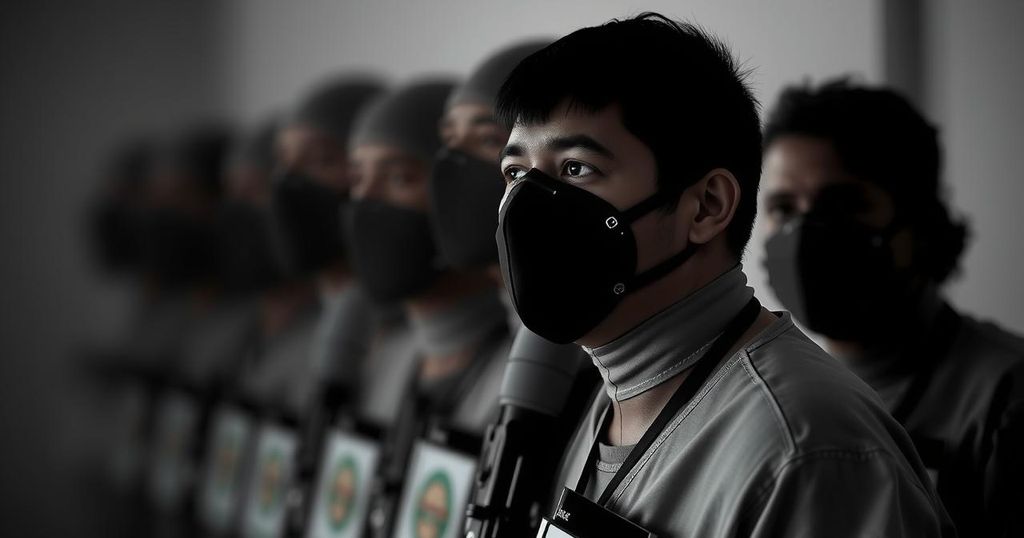Conflicts
ASIA, BRAZIL, CONFLICT, DYAB ABOU JAHJAH, EUROPE, GAZA, GAZA CITY, GAZA STRIP, HASSAN NASRALLAH, HEZBOLLAH, HIND RAJAB, HIND RAJAB FOUNDATION, HRF, JHAJAH, MILITARY OPERATIONS, NETHERLANDS, NGO, NGO MONITOR, NORTH AMERICA, PALESTINE, SOUTH AMERICA, TERRORISM, UNITED ARAB EMIRATES, UNITED STATES, WAR CRIMES, YA, YAHYA SINWAR
Omar El-Sharif
Hind Rajab Foundation’s Legal Actions Against IDF Soldiers: An Overview
The Hind Rajab Foundation has filed a legal complaint against an IDF soldier in Brazil for alleged war crimes related to activities in Gaza. This action is part of a broader initiative targeting IDF servicemen, intensifying the discussion around military accountability on international platforms. Founded by Dyab Abou Jahjah, HRF promotes awareness and legal actions concerning purported war crimes in Palestine.
The Hind Rajab Foundation (HRF), based in Belgium, has initiated a legal complaint against an Israeli Defense Forces (IDF) soldier who was on vacation in Brazil, alleging his involvement in significant demolitions of civilian homes in Gaza, which they characterize as part of a coordinated campaign of destruction. The Brazilian Federal Court has since mandated an investigation into the accused soldier concerning the purported war crimes.
This legal action is part of HRF’s broader strategy against IDF personnel, including doxxing and lawsuits based on social media evidence. According to HRF, their efforts are directed toward prosecuting those they allege to be responsible for crimes against humanity in Palestine, supported by their claims of gathering extensive documentation regarding actions taken against civilians and infrastructure in Gaza. Additionally, HRF has pursued the International Criminal Court (ICC) to issue arrest warrants for approximately 1,000 IDF soldiers, asserting they have amassed substantial evidence of military involvement in war crimes.
Founded in September, shortly following the death of a six-year-old victim from Gaza, HRF is linked with the March 30 Movement—another organization advocating for the recognition of genocide in Gaza. Dyab Abou Jahjah, its founder, has a long-standing reputation for anti-Israel activism, previously expressing endorsements for Hezbollah and dismissing criticisms of violent acts. His public statements and affiliations illuminate a radicalized viewpoint that seeks to challenge the narrative surrounding the Israeli-Palestinian conflict.
Kareim Hassoun, the secretary of HRF and former chairman of the Arab European League, has also made incendiary statements regarding the recognition of Israel, thoroughly opposing its legitimacy. This prevailing narrative of resistance aims to undermine the foundation of Israeli statehood while promoting anti-colonial rhetoric, as evidenced by their reaction to recent escalations in violence in the region.
The HRF’s actions symbolize an evolving trend of international scrutiny and legal maneuvering directed against Israeli military personnel amidst a contentious geopolitical landscape where claims of war crimes are fervently pursued in courts far beyond the traditional theaters of conflict.
The Hind Rajab Foundation operates within a contentious framework where various international organizations are increasingly targeting soldiers from the Israeli Defense Forces (IDF) under allegations of war crimes. Utilizing legal avenues, these groups aim to create significant public awareness and potential legal consequences for military actions conducted during conflicts. Against a backdrop of heightened violence and complex narratives involving Gaza and Israel, the HRF’s recent complaint underscores the ongoing tensions and legal battles faced by military personnel linked to the Israeli campaigns in Palestinian territories.
The Hind Rajab Foundation’s legal actions highlight the increasing globalization of accountability for military conduct, particularly concerning the Israeli-Palestinian conflict. As they pursue claims against individual IDF soldiers, the organization reinforces a narrative of resistance and calls for broader recognition of alleged war crimes. Such campaigns reflect a marked shift in how international entities engage with national military actions and the implications of international humanitarian law.
Original Source: www.jpost.com








Post Comment